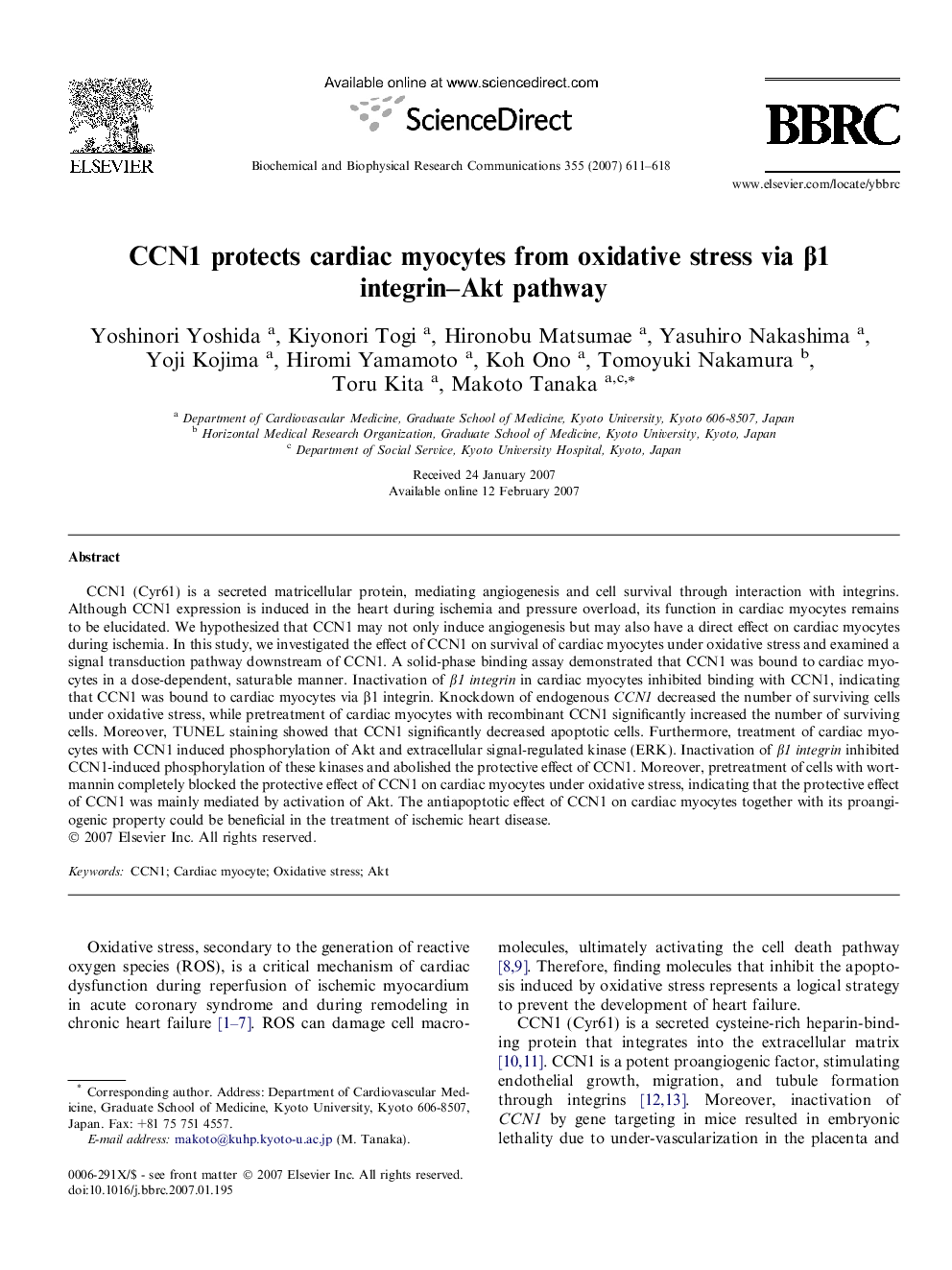| Article ID | Journal | Published Year | Pages | File Type |
|---|---|---|---|---|
| 1938871 | Biochemical and Biophysical Research Communications | 2007 | 8 Pages |
CCN1 (Cyr61) is a secreted matricellular protein, mediating angiogenesis and cell survival through interaction with integrins. Although CCN1 expression is induced in the heart during ischemia and pressure overload, its function in cardiac myocytes remains to be elucidated. We hypothesized that CCN1 may not only induce angiogenesis but may also have a direct effect on cardiac myocytes during ischemia. In this study, we investigated the effect of CCN1 on survival of cardiac myocytes under oxidative stress and examined a signal transduction pathway downstream of CCN1. A solid-phase binding assay demonstrated that CCN1 was bound to cardiac myocytes in a dose-dependent, saturable manner. Inactivation of β1 integrin in cardiac myocytes inhibited binding with CCN1, indicating that CCN1 was bound to cardiac myocytes via β1 integrin. Knockdown of endogenous CCN1 decreased the number of surviving cells under oxidative stress, while pretreatment of cardiac myocytes with recombinant CCN1 significantly increased the number of surviving cells. Moreover, TUNEL staining showed that CCN1 significantly decreased apoptotic cells. Furthermore, treatment of cardiac myocytes with CCN1 induced phosphorylation of Akt and extracellular signal-regulated kinase (ERK). Inactivation of β1 integrin inhibited CCN1-induced phosphorylation of these kinases and abolished the protective effect of CCN1. Moreover, pretreatment of cells with wortmannin completely blocked the protective effect of CCN1 on cardiac myocytes under oxidative stress, indicating that the protective effect of CCN1 was mainly mediated by activation of Akt. The antiapoptotic effect of CCN1 on cardiac myocytes together with its proangiogenic property could be beneficial in the treatment of ischemic heart disease.
